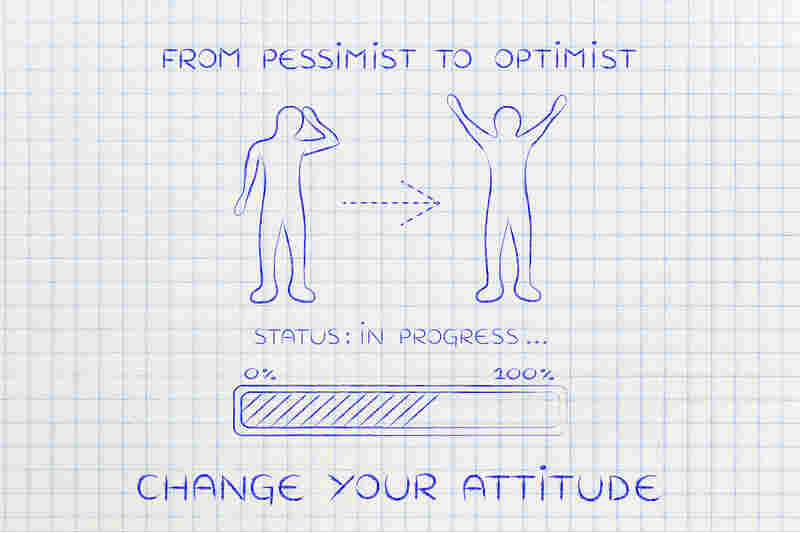











You probably know pessimistic people and you might even be one yourself. Let’s skip past the consequences of choosing a pessimistic attitude that you probably know all about:

Instead, let’s focus on how a pessimistic mindset develops, how to cope with it, and then we’ll take a look at overcoming pessimism to build a brighter future.
The mental health world is predicated on the fact that people can make choices and that they can change their behaviors and thinking patterns. Some of those choices are about taking positive action and changing negative thinking patterns into productive, pleasant lines of thought. If you grew up in a negative environment, experienced poor parenting, faced formidable odds at dealing with an illness, poverty or some other setback, you can, as an adult, or as a younger person, choose to look past the problems plus miserable mindsets and for the good in life at any time. That goodness includes the insights and strengths that you’ve gained along the way, the pleasant interactions that other people and situations afforded you despite other realities, and so on. Count your blessings aloud, in journals. Collect marbles, seashells, or some small memento, one for every time you feel happy. Keep the collection in attractive containers in order to look back at good times. Speak of them to interested people. Focusing on what goes right in life can be a major mood-booster.
Pessimists give off negative energy. People might not want to approach pessimists due to the fear that the conversation or other effort will go wrong since pessimist focus on failure. As the joke indicates, “Given two poor choices, a pessimist would choose both.”
People who give off negative energy tend to scowl, an obvious sign that they lack patience or a desire to socialize. That facial expression serves a “Stay away from me” notice to the public. Body language can radiate negativity, too. Crossed arms indicate that “I’m not approachable. Keep your distance.” Avoiding eye contact or staring too hard also indicates hostility. Repeated gestures that convey negativity are problems, too. Shrugging indicates boredom, disinterest, or condescension. Hands on the hips with a head cocked sideways shows skepticism, anger or impatience. Specific kinds of sighs or snorts with hard, pronounced breaths indicate anger, condescension and/or the desire to take revenge. Sarcastic remarks worsen all relationships.
The life lesson here is that awareness about being pessimistic aka negative can alert the person to improve her or himself inside and out. The key is to make that self-improvement choice and to stick with it.
If you want help to stop being a pessimist, seek out a supportive therapist online or in an office. Help is ready to work when you are.